
Dawn and dusk can be the two most productive times of day for the airgun hunter because they are the times that the day and night shifts of the animal kingdom are swapping over. I’m not an airgun hunter these days, but dawn and dusk are still special for another reason, in that they are the two times of day when the wind is most likely to be calm enough for outdoor airgun accuracy testing, and there are few better ways of spending a summer evening than outdoors with an airgun.
As light levels fall, our eyes start to lose the ability to perceive colours, starting with red, and ending with green and blue, and we can see less and less fine detail, because the colour photosensors in the eye (called ‘cones’) are concentrated toward the centre of the retina, and are densely packed, so when the light level falls too low for cone vision, we lose both colour and detail.
The other type of photosensors in the eye are called ‘rods’; they cannot distinguish colour, but they are more sensitive than cones, so they continue to operate when the cones cease to work. Rods are distributed mainly toward the outside of the retina, and are less densely packed than cones, so they don’t provide much in the way of detail although, on the plus side, they do make our peripheral vision very sensitive to movement.
In normal daylight, we see mainly with the cones (called photopic vision), as light levels fall we use both cones and rods (mesopic vision), and at very low levels, only the rods function (scotopic vision).
BRIGHTNESS
This story is from the August 2020 edition of Airgun World.
Start your 7-day Magzter GOLD free trial to access thousands of curated premium stories, and 9,000+ magazines and newspapers.
Already a subscriber ? Sign In
This story is from the August 2020 edition of Airgun World.
Start your 7-day Magzter GOLD free trial to access thousands of curated premium stories, and 9,000+ magazines and newspapers.
Already a subscriber? Sign In
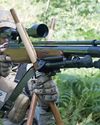
The ‘One Rifle' Philosophy
Philip Siddell discusses the benefits that adapting to a changing financial situation can bring to your shooting

Get Ready For Winter
Dave Barham reveals his tips and tricks for hunting rabbits during the colder months
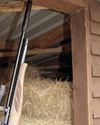
Let's All Try The PC Approach!
The Editor recommends the limitless delights of ‘PC’ shooting - and offers some suggestions
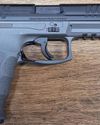
Feeling A Little Grey?
Kevin Cudmore has the answer with the Umarex HK VP9

FUTURE SET IN STONE!
One of the UK’s leading air rifle centres gets a brand-new store!
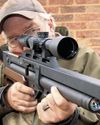
THE EYES HAVE IT!
Via Blackpool Air Rifles and Kalibrgun, the editor examines the remarkable Argus 60
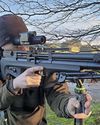
THE FUTURE IS HERE!
Russ Douglas introduces the next generation night-vision imager, relatively affordable and perfectly compact

CHALLENGE ACCEPTED!
Six top shooters face 10 tests of their talent – as Ian Harford reports from America’s shooting reality tv show… on the American Airgunner Challenge
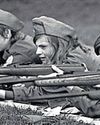
EAST MEETS WEST
John Milewski takes a peek at air rifle shooting behind the Iron Curtain
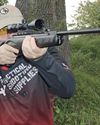
A BREAK WITH TRADITION!
Tim Finley breaks his Kral Arms duck to review the Champion springer